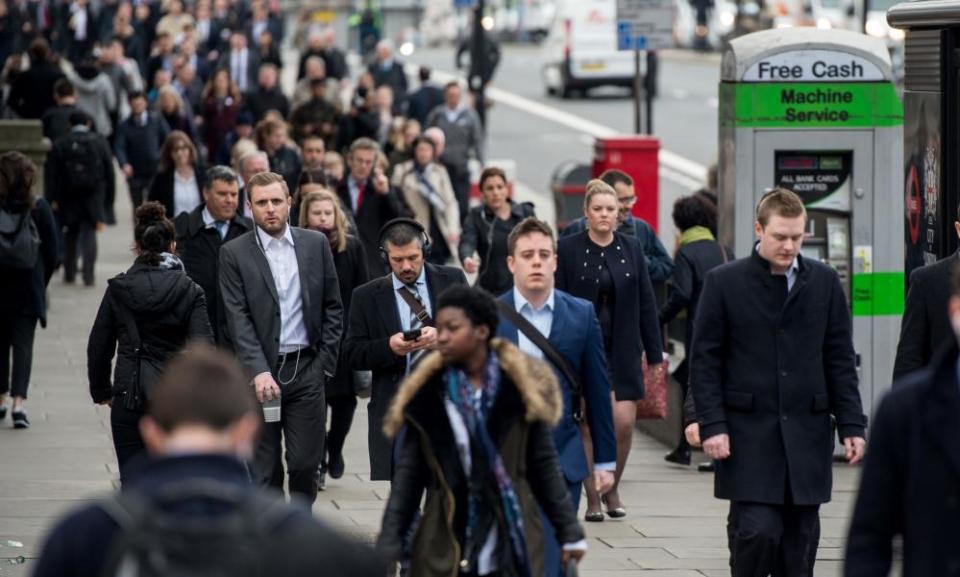State pension changes will cost 7 million people £10,000 each

More than 7 million people will lose just under £10,000 each because of new government plans to increase the state pension age earlier than planned.
Last week the government announced it would raise the state pension age to 68 for those now in their late 30s and early 40s. The change will affect Britons born between 1970 and 1978, who will now have to wait another year to receive their state pensions, a move which the government found would save £74bn.
New analysis from the House of Commons library found that each person affected by the change stood to lose around £9,800, which Labour called “disgraceful and unjustified”. The analysis said the sum was roughly what might be expected, given that one year’s state pension is around £8,300.
Debbie Abrahams, the shadow work and pensions secretary, said the government was asking “millions of people to work longer to pay for their failing austerity plans”, and said recent research that showed increases in life expectancy were slowing proved there was no evidence-based reason for the change.
“Labour want to take a measured approach, leaving the state pension age at 66 while we review the evidence emerging around life expectancy and healthy life expectancy, considering how we can best protect those doing demanding jobs and the contributions they have already made,” she said.
The government’s plans would see the state pension age for men and women equalised at 65 at the end of 2018, before rising to 66 in 2020 and 67 in 2028.
The work and pensions secretary, David Gauke, said implementing the proposals would create “fairness across the generations, and the certainty which people need to plan for old age”. He said failing to act “would be irresponsible and place an extremely unfair burden on younger generations”.
The change implements the findings of a review by the former CBI director general John Cridland, which found increases in pension age should be accelerated to prevent the costs of the state pension becoming unsustainable.
Labour had committed in its manifesto that the party would not implement the Cridland review proposals, but would consult again on varying retirement ages.
A Department for Work and Pensions spokesperson said: “These changes will ensure that the state pension is both fair and sustainable for future generations. Those affected will on average still receive the state pension for longer than the generations before them.
“Under the simplified new state pension at its basic level, people in retirement will receive over £1,250 a year more than compared to April 2010.”

 Yahoo Finance
Yahoo Finance 